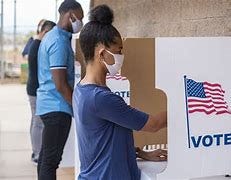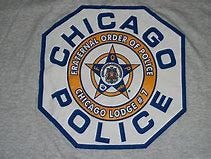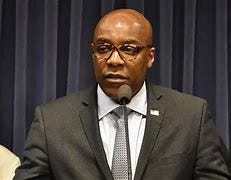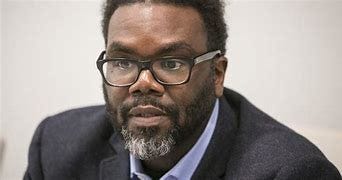Does Brandon hear the footsteps?
Johnson's string of reversals not keeping political wolves at bay





In May 2023, Mayor Brandon Johnson stormed into office with an end-the-budget— problems plan he made sound like dynamite. Seventeen months later, the plan resembles a wet firecracker.
Johnson’s tenure is beginning to look like retreat-of the-week as he repeatedly reverses course on what were to be the linchpins in a “progressive” platform. The string of walking back so many plans and initiatives apparently has disrupted the political ecosystem.
During polite political times, incumbents are generally allowed to get half of their term in before the sharks start circling. Johnson’s missteps have brought them out and in large numbers even though the election is more than two years away.
Social media patrons have no qualms about identifying Johnson as a one-term mayor. Ironic is the only way to describe that sentiment juxtaposed to the mayor’s bragging that he would exceed former Mayor Richard M. Daley’s 23 years in office and become the longest serving mayor in Chicago history.
The looming question is who is best positioned and prepared to successfully take on Johnson.
Crain’s Chicago Business recently listed several top ties potential challengers to Johnson in the 2027 election. Even though he hasn’t signaled whether he is running Secretary of State’s name Alexi Giannoulias is getting wide circulation.
Another state official, Comptroller Susana Mendoza is rumored to be considering her second successive run for mayor in the next election. The street talk is she is likely to be competing against Congressman Mike Quigley, as well as former CPS Superintendent Janice Jackson.
One name that has not and may not come up is CPD Superintendent Larry Snelling. He has tactfully stood up against Johnson when the mayor pulled the plug on the ShotSpotter gunshot technology system; and more recently when the mayor wanted to carve out the entrails of the operation helping the department comply with a federal consent decree.
Of the aforementioned, Snelling is the only one with city-wide experience dealing with every department, and routinely and repeatedly engaged with the city council. He also has been responsible for the largest departmental budget within city government.
The 32-year CPD veteran has been in the job since being unanimously approved by the city council in September 2023. An Englewood native, Snelling also is part of the decision-making process for every major event in Chicago such as the NASCAR races, the Democratic National Committee convention, and a host of others than bring 10s of thousands to Chicago.
Thirty-fourth Ward Alderman Bill Conway’s is another name that has gotten traction for months as a potential and leading challenger for the fifth floor in 2027. He has been described as the ideal candidate given, he is a former prosecutor, a U.S. Navy veteran, and a lifelong Chicagoan.
The results of Johnson’s plans have morphed into a one-person game of throwing it against the wall to see what sticks. Nothing- is the answer the first-term mayor has repeatedly received.
His relationship with Gov. JB Pritzker straddles lukewarm to barely existent, and the state’s Attorney General Kwame Raoul, sternly advised Johnson in an email the City was likely to be on the receiving end of a lawsuit if Chicago didn’t reverse course on a budget, move jeopardizing progress on a federal consent decree under which the city is operating. It took the mayor less than a week to do the about face Raoul, as well as CPD Superintendent Larry Snelling suggested.
Snelling emphasized that approximately five years of work attempting to comply with the decree would evaporate if Johnson insisted on cutting 162 jobs within CPD. Those jobs were all tied into some aspect of consent decree compliance.
Just two weeks after Johnson was forced to give last rites to his highly publicized hallmark plan to close a near-$1 billion budget gap via a cornucopia of non-revenue generating steps, including a $300 million property tax increase. The idea was mourned before Johnson formally introduce, then suffered an historic 0-50 city council. And there have been few, if any, more polarizing figures than the mayor himself.
Recently, Johnson, buoyed by his hubris, breached a long-standing news media/government relationship by berating a reporter during a news conference. The reporter can be heard asking Johnson an extremely lengthy question which drew the ire of the mayor.
Unlike like other public officials when broached with a question that made them uneasy and answered “no comment;” Johnson threatened to and ultimately had an aide take the microphone from the reporter.
An astute mayor would have acknowledged the question was lengthy for that moment and invited the reporter to remain after the news conference and ask the question. He also had the option of having an aide schedule a time the reporter could stop by the mayor’s office.
Johnson appears to be oblivious to the fact that for the next two and-one half years; regardless of how many campaign dollars he raises he will still need the news media to get his message out citywide during this stint as mayor along with his time as a county commissioner, Johnson obviously has failed to grasp the difference between elocution and communication. Were that not the case, the mayor would feel compelled to repeatedly rephrase his answers to the news media.
Whether reporters and editors like him as mayor or not, Johnson wants those covering to be neutral at least.
Disssing the reporter certainly demonstrated the mayor’s prowess as a government official; however, the move undoubtedly made him the laughingstock of the news media’s newsrooms across the city. The culture of most newsrooms can be downright irreverent, while that won’t be the reporter’s public persona.
Johnson, since taking office has struggled mightily with news media interaction. He has a penchant for brow-beating questioners telling them what he thinks they should be asking as opposed to the actual question. No one should be surprised when the opponents to the mayor’s re-election show commercials from last May when rather than address reporters Johnson literally ran away through a back door of a church and down the alley when his SUV and driver were waiting.
The collaborative spirit that Johnson maintains is at his core is all but imperceivable in the mayors’ dealing with the Chicago Public Schools. The Chicago Teachers Union (CTU), which bankrolled the mayor’s campaign wanted CPS Superintendent Pedro Gonzales fired; and Johnson wanted him out when he refused to take out short-term loan to cover the costs of the district’s upcoming contract with teachers, and a budget shortcoming. . Rather than act at Johnson’s behest, the entire school which he appointed, resigned en masses. Their replacements were named within a week.
Previous mayors often floated ordinances or initiatives that were overwhelming approval by the city council. Johnson became the first mayor in memory that had all 50 members of the council voting against one of his proposals- a plan to increase property taxes by $300,000. The mayor had been warned it was dead-on-arrival, and he quickly learned even the council committee chairs and vice mayor he appointed voted no.
Regardless of how credible the names of potential opponents, Johnson will be forced from this point forward to attempt to govern while simultaneously looking over his shoulder-an uncomfortable position for even for a veteran politician.






